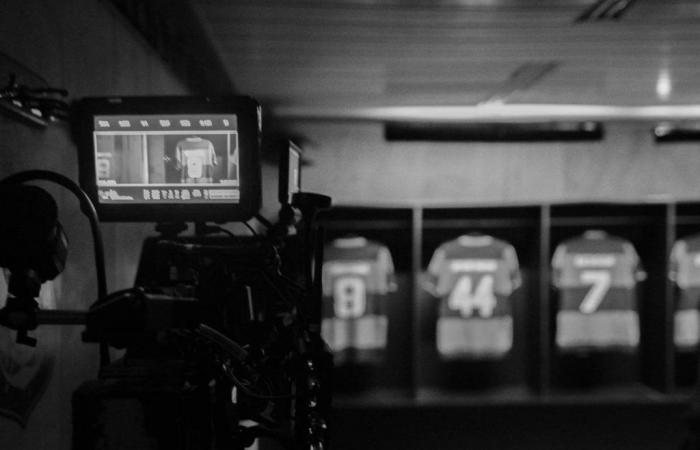It was February 8, 2019. For me, an especially happy date. I didn’t have time to watch the news before entering my doctorate committee in the early afternoon. It was already dark when I left PUC-Minas and went to dinner to celebrate the approval. No one said anything, perhaps to avoid ruining the moment. In the following days, I went on vacation and was unable to understand the extent of the tragedy that had happened at Flamengo’s CT, my favorite team since I heard the anthem for the first time due to my father’s influence. I would be deeply unhappy if Flamengo were missing from the world.
The way things are told affects our feelings about them. I now feel disgust with the Flamengo board. For negligence, for neglect. I accessed the feelings I let go five years ago watching the Netflix documentary series “Ninho: Futebol e Tragédia”. The fire at Ninho do Urubu, which killed ten of the team’s base players, between 14 and 16 years old, on February 8, 2019.
Base players are athletes at the beginning of their careers. Promises that have not yet become valuable enough to even have safe housing conditions. “Where I thought my son would be safest was where I lost,” said the mother of Arthur Vinicius, 14.
Still impacted by the series, I spoke with its director, documentary filmmaker Pedro Asbeg.
Death without Taboo: What made you want to do the series?
Pedro Asbeg: I have a lot of documentary work about football, it’s a topic that I love because I’m passionate about football. And I also support Flamengo. But since the time of the fire and for a long time I preferred not to delve into the subject, it was very painful. But then the subject came to me. I received an invitation from Marina Bouças, executive producer at UOL, which develops audiovisual content. She told me that there was interest in producing a series about the tragedy at Ninho do Urubu. And that’s how I spent three years immersed in this story. It was very tiring, painful, but at the same time necessary. It couldn’t be done any other way, you really had to dive. There were many difficult moments, of a lot of pain, collective pain of the team and sometimes solitary pain, when I was alone after an interview in the hotel or in the editing room. We were dealing with a very great sadness that was still very much alive.
Death without Taboo: This tragedy has many dimensions. For me, the series is also a very powerful documentary about inequality. Was that a concern of yours?
Pedro Asbeg: This was totally intentional, we wanted to address this inequality that exists in the world of football, in which the managers, the top hats, are mostly white and rich people and the players are mostly poor and black children and teenagers. This was hotly debated from the beginning of the script room, because we understood that dealing with this tragedy also meant talking about other common themes in Brazil: impunity, speed of justice and, especially, social inequality. The clubs’ view of these boys is a mercantilist view, they are treated as products that are worth little. The idea is that the less money spent on maintaining them, the greater the profit will be when the club manages to sell them. It’s very sad to think like that, but it’s no coincidence that the place where the boys slept was like that, that it was in those precarious conditions. It was clearly risky to house the boys there, Flamengo knew this risk and, even so, the club’s board preferred to do nothing.
Death without Taboo: When I found out, through the documentary, about the sensitive letter that Fluminense sent to the family of the victim Bernardo Pisetta, aged 14, I thought “it’s not possible that Flamengo didn’t do anything like that”. I know the fans paid tribute, it’s very beautiful how this is portrayed in the series. But did the club, institutionally, really not express its condolences in any way?
Pedro Asbeg: Fluminense’s letter exposes not only the absence of Flamengo’s management, but also total insensitivity. It is very sad to think that certain actions could be carried out by Flamengo’s directors at no cost. We are not talking about payment, compensation, but simple gestures, of humanity, like this beautiful letter from Fluminense, which moved us, because it is very strong, well written, with the message that Bernardo’s family was not alone. Flamengo, on the contrary, gave the impression to family members that they were alone, helpless and that, at most, they would fulfill a legal obligation to pay compensation. There was never a phone call, a hug, a contact, nothing. As a person who was close to these families and as a fan, this hurts a lot. It hurts a lot to feel ashamed of the Flamengo that we love.
Death without Taboo: Do you think that the mourning of these families is prolonged by the lack of someone to blame for the tragedy, five years later?
Pedro Asbeg: I think that their grief is eternal and that no pain compares to the death of the boys. I believe that the lack of accountability increases this pain, but that is not what families think about. When we touch on this subject, then we notice the revolt of thinking about how it is possible that, so much time later, there is no one held responsible for this fire that killed ten teenagers, with so much evidence about the irregularities. No one was punished, no one was identified. This is very absurd and hurts everyone, including families.
But I think the biggest pain is the forced erasure of history. The tragedy is only remembered by the club once a year or, occasionally, by the press. The fans, yes, sing a song in honor of the fire victims in every game, in the tenth minute. But respect for the memory of these young people never comes from the board, institutionally. And I’m sure this is a huge pain. Shortly after what happened, ten shirts representing the ten dead boys were placed in the Flamengo Museum. When the museum opened, a few years later, there were no longer any memories or tributes to them.
We are talking about a club that has a very modern training center, where, despite this, ten boys died and there is no memory of that tragedy there. It is so absurd that, on February 8th, Flamengo opened a chapel inside the Ninho and, even then, made no mention of the boys. This forced deletion is very painful. At least, with the series, we can give some encouragement to these people, with the certainty that we have not forgotten and that this story will not be forgotten.
*****
I won’t forget. Until now, Flamengo in 2019 represented, for me, the final minutes of the Libertadores with a turnaround that my father and I watched in disbelief and emotion. No more. Flamengo is not and cannot be greater than the lives of the ten boys who, also in a few minutes, died on that February 8th.






